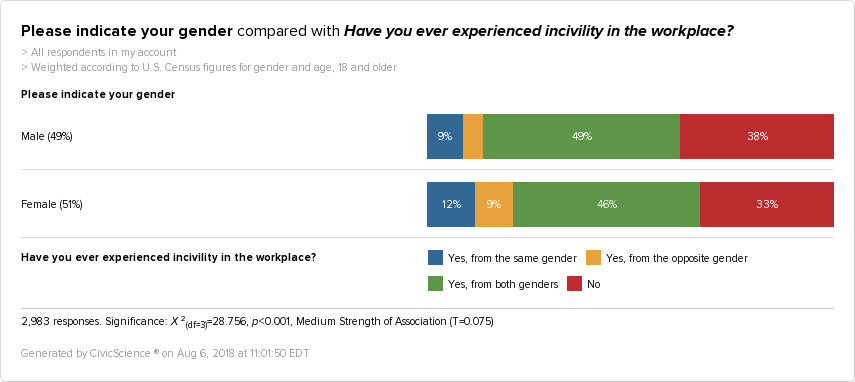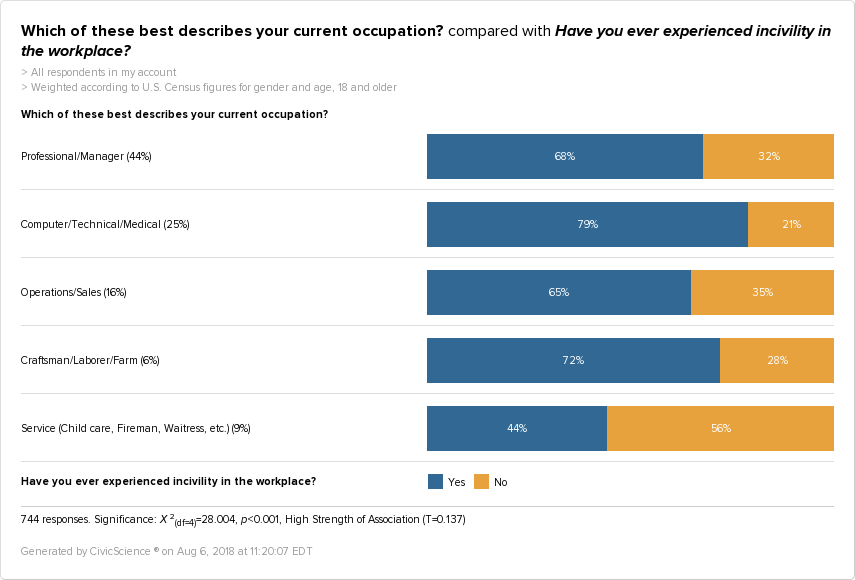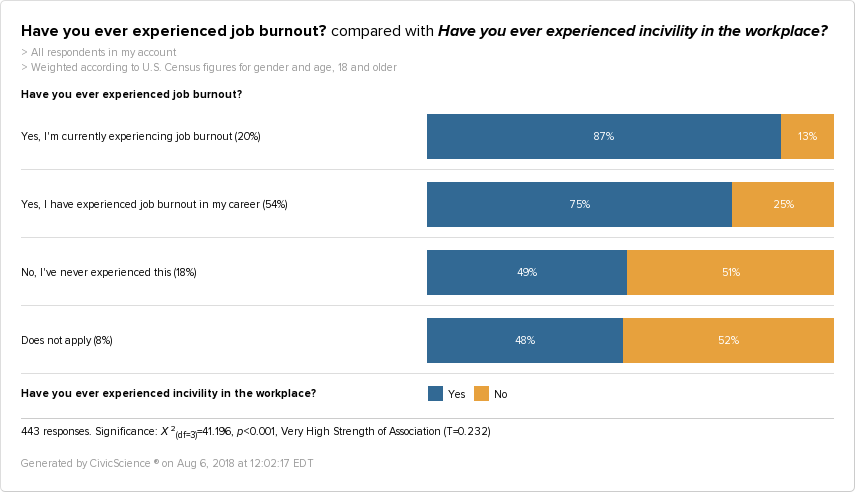People are speaking out about unkindnesses in the workplace. CivicScience asked nearly 3,000 U.S. adults last month about experiencing incivility in the workplace.
Combining the “yes” responses, 64% of U.S. adults have experienced some kind of unkindness from a coworker in the workplace. The 47% suggest both genders are equal opportunity offenders.
When the question is broken down by gender, it’s clear that women are almost twice as likely than men to have experienced incivility from the opposite gender. Women are overall more likely to experience some incivility in the workplace, but the numbers for the entire population are startling as well.
Experience broken down by industry is also telling. Incivility has been simplified to “Yes” and “No” responses below.
In the Computer/Technical/Medical field, a majority, 79%, of employees are experiencing some kind of incivility. Surprisingly, typically high-stress occupations in the service industry report the lowest incidence of incivility.
How does unkindness in the workplace influence morale? For one thing, it leads to higher job burnout. People who are currently or have experienced job burnout in the past are much more likely to have also experienced incivility in their workplace.
Of course, “incivility” is a vague term, encompassing an umbrella of issues or behaviors. However broad it is, the term is telling. At the end of the day, incivility indicates rude or unacceptable social behavior. For the majority of U.S. adults to identify experiencing this behavior in the workplace isn’t reassuring.












